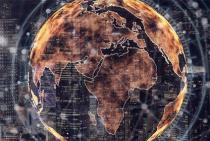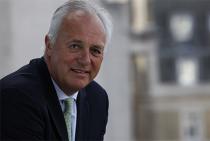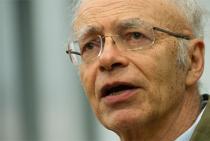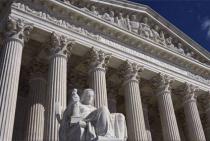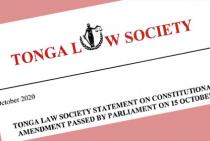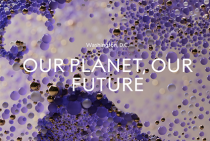I agree with you that the PACER Plus trade agreement is of questionable benefit for Tonga. But I do not share your concern for Tonga’s trade deficit. Over the last year, Tonga’s foreign reserves have increased about 19% to the equivalent of nearly 10 months’ imports. If the balance of trade were a problem for Tonga, its foreign reserves would be declining. - Leigh Harkness
You are here
Results for Opinion
Friday 11 December 2020
Queanbeyan, Australia
Tuesday 8 December 2020
Cambridge-MA, USA
According to the conventional wisdom, the twenty-first century will be characterized by the global shift from American hegemony to Sino-American rivalry. But a bipolar international order is neither inevitable nor desirable, and in fact, would be deeply unstable. Its emergence would heighten the risk of violent conflict and three of the biggest challenges facing humanity would either be ignored or made worse. We should start imagining and working toward alternative arrangements. - By Daron Acemoglu.
Friday 27 November 2020
Nuku'alofa, Tonga
Fakamolemole pea hufanga he fakatapu ki he Hau e ‘Otu Tonga, Hou’eiki, Pule’anga ‘o Tonga mo hono Falealea kae ‘umaa e Tonga kotoa. Kae fai atu mu’a ha fakatalanoa hei’ilo na’a tokoni ki he’etau langa fonua. - ‘Inoke Fotu Hu'akau.
Wednesday 25 November 2020
Washington DC, USA
Though it has not come as a surprise, the attack on the credibility of the 2020 election by US President Donald Trump and his Republican Party cannot simply be brushed under the rug of history. Once the norms that underpin constitutional democracy have been tossed aside, there is little left to fight for. America’s failures to address past injustices – including the subjugation of indigenous peoples, slavery, racism, and the deprivations of the poor, immigrants, and the incarcerated – helps to explain why trust in democratic institutions has been so corroded in the first place. Having been made brittle, America’s institutions have long been vulnerable to attack. By Katharina Pistor
Saturday 21 November 2020
Fasi mo e Afi, Tonga
The first question of course is: what are Tongan traditions or traditional customs? Traditions in any place at any time are continuously subject to changes, especially in, what Chinese call, 'interesting' times. One thing is clear: you had in pre-missionary times chiefs and commoners. The commoners were essentially slaves, and any chief could do with them as he pleased. Briefly: the word of the chief was the law. So no need any more of judges, laws or even a Constitution. And after this law change we do not need churches any more, as they are not traditional, and all the faifekau will be fired. And, of course, most parliamentarians are commoners. - Firitia.
Friday 20 November 2020
London, United Kingdom
For much of its life, the United Nations has hidden behind the comfortable maxim that, “If we didn’t have it, we would have to invent it.” Now at the venerable age of 75, the organization still enjoys widespread approval in global opinion polls. But beneath the surface, the UN faces difficulties that cannot be ignored. The Security Council will remain ineffectual until it is reformed, which is a distant prospect. But there are ways around this paralysis. By Mark Malloch-Brown.
Thursday 19 November 2020
Melbourne, Australia
COVID-19 continues to have a devastating impact on public health and to rattle the global economy with structural shocks. The pandemic has now killed more than one million people, while the International Monetary Fund estimates that global GDP will shrink by 4.4% in 2020. But, strange as it may seem, the current crisis could offer developing countries a path toward greater economic self-reliance. By Syed Munir Khasru.
Monday 16 November 2020
Oxford, United Kingdom
The last time the world faced challenges as serious as those facing us now was in the period immediately following World War II. At that time there was an extraordinary burst of international institutional creativity, led by the United States. The late 1940s saw the creation of the IMF, the World Bank, the Marshall Plan, the United Nations, which the WHO joined in 1948, and the GATT, now the WTO. If countries in Asia want a multilateral system to survive, they need to promote, use and improve it. The G20 Summit in Riyadh on 20–21 November will provide an opportunity to push forward this agenda. By David Vines / East Asia Forum.
Sunday 8 November 2020
Melbourne, Australia
Joe Biden has won the US presidency, but he will have a hard time restoring ethical concerns in a country with so many voters who have become indifferent to the well-being of those outside their immediate communities. Donald Trump has been defeated, but the election showed that more Americans than ever have come to identify with his narcissism. By Peter Singer
Tuesday 3 November 2020
Canberra, Australia
Whoever claims victory in the US presidential contest this week, Washington’s grasp over Asia’s future is on the wane. The world’s confidence in US power and the moral authority it once commanded and the capacity to deploy it are much diminished. Even the most energetic and driven administration won’t restore it easily, soon or perhaps ever. ...The reality is that small and middle powers in Asia now have to play an unfamiliar leadership role. This ominous responsibility will remain long after the 46th President of the United States settles into the White House. By East Asia Forum editors.
Thursday 29 October 2020
Ann Arbor-MI, USA
Unlike the old superpower contest between the United States and the Soviet Union, the incipient cold war between China and the US does not reflect a fundamental conflict of unalterably opposed ideologies. Instead, today’s Sino-American rivalry is popularly portrayed as an epic battle between autocracy and democracy. ...The idea that we can choose only between freedom in an American-style democracy and order in a Chinese-style autocracy is false. The real aim of governance is to ensure pluralism with stability – and countries everywhere must find their own path to this goal. By Yuen Yuen Ang
Tuesday 27 October 2020
London, United Kingdom
For those who have only ever known America as a champion of democracy and the rule of law, it has been tragic to witness the country's descent into corruption and bad-faith partisanship. And nowhere is the rule of "dark money" more evident than in the rushed confirmation of Amy Coney Barrett's appointment to the Supreme Court. By Chris Patten.
Monday 26 October 2020
Chicago, USA
Throughout US President Donald Trump's first term, there has been constant hand wringing over a "constitutional crisis" that never arrived. The irony is that an administration led by Joe Biden would almost certainly confront such a crisis, owing to Trump's transformation of the Supreme Court into a right-wing redoubt. A constitutional crisis, properly understood as a turning point that might lead to collapse or transformation of the system, has not occurred. But such a crisis does now appear increasingly likely. By Eric Posner.
Friday 23 October 2020
Melbourne, Australia
With the exception of decent New Zealand and arguably Australia, the rich, European ethnicity countries of the US Alliance have been involved in intentional Gerocide (mass killing of the elderly) in which their deliberate Covid-19 pandemic policies have resulted in “Covid-19 deaths per million of population” 10-180 times greater than in New Zealand (5). Expression of a deliberate intention to cause avoidable death of large numbers of people, and specifically of elderly people, would be unacceptable in politically correct Western democracies. But, unspoken and publicly unacknowledged, Gerocide is what has been happening in North America and Western Europe during the Covid-19 pandemic. By Dr Gideon Polya.
Thursday 22 October 2020
Nuku'alofa, Tonga
The Tonga Law Society is deeply concerned at the amendment to the Constitution of Tonga passed unanimously by Parliament on 15 October 2020. In bypassing the consultation process, Parliament has denied the Tongan people the most fundamental right to be heard on a matter of elemental importance to every Tongan subject. - Sione Tu'itavake Fonua, President, Tonga Law Society
Tuesday 20 October 2020
Chicago, USA
For all the hand wringing over Donald Trump's authoritarian rhetoric, the 2020 US election is not really about the incumbent. It is about deep-seated suspicion regarding the national government's role, which makes populism a recurring feature of American political history. By Eric Posner.
Saturday 17 October 2020
Stockholm, Sweden
The announcement of this year’s Nobel Prize laureates should remind us of the many contributions basic science has made to contemporary life. With COVID-19 ravaging much of humanity, and the world anxiously awaiting a breakthrough that can end the pandemic, we can no longer take science for granted. And the global science community, for its part, has risen to the occasion in unprecedented ways, not only to develop vaccines, therapies, and diagnostics, but also to improve our understanding of the virus and the best strategies to protect ourselves. By Lars Heikensten, Marcia McNutt, and Johan Rockström.
Thursday 15 October 2020
Queensland, Australia
At the start of the year, when COVID-19 was ravaging Wuhan, China, and beginning to envelop the West, I warned that the crisis would likely be replicated across much of the developing world, with significant long-term consequences for us all. Sadly, this prediction was correct....At the global level, the challenge is to ensure that vulnerable people everywhere are protected. Failing that, we will be entering a much more dangerous world, and the prospects for a robust global economic recovery will be severely diminished. By Kevin Rudd
Friday 9 October 2020
Kigali, Rwanda
Health-care delivery in nearly every country has been disrupted by policymakers’ mistaken initial assumption that health systems would quickly win the fight against COVID-19. As the pandemic’s caseload and death toll are increasing daily, it is often stalling or reversing hard-won progress on minimizing the impact of other diseases, from diabetes to malaria. By Anatole Manzi.
Thursday 8 October 2020
New York, USA
Without a vaccine, COVID-19 won't "go away" through a strategy of herd immunity. Two scientific case studies have already confirmed that the SARS-CoV-2 virus that causes COVID-19 can reinfect an individual and that our immunity to coronaviruses is alarmingly short-lived. I have previously called herd immunity a “reckless and ineffective strategy.” Now that COVID-19 reinfections are not just a possibility, but a reality, I would add “lethal” to my description. By William A. Haseltine



